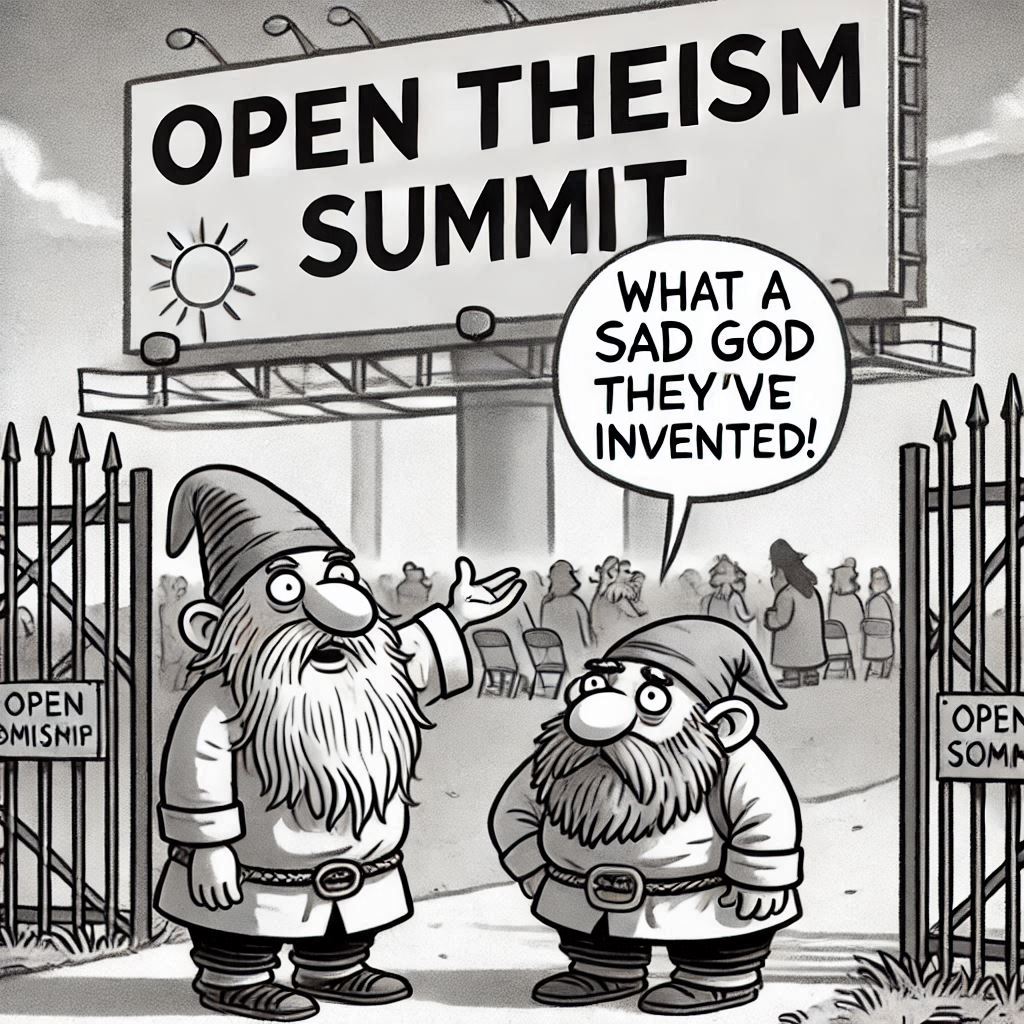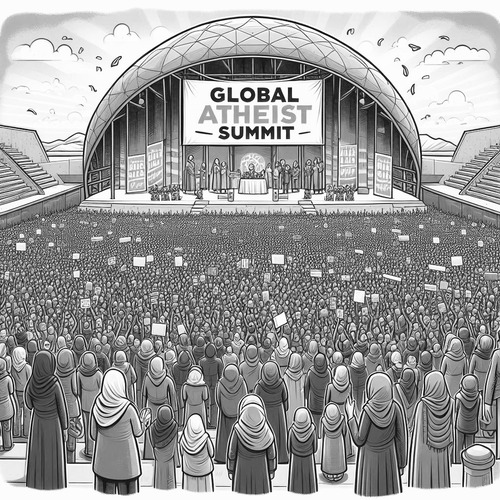What is Open Theology? Why It Falls Short of Biblical Truth
INTRODUCTION
Ever wondered if God knows what you’ll choose for breakfast tomorrow? According to a theological perspective called Open Theology, He might be just as curious as you are about your decision. This may sound startling to many Christians, but it represents a real theological movement that has gained attention in recent decades.
Open Theology, also known as Open Theism, emerged in the 1990s. At its core, it presents a radical re-imagining of God’s knowledge and relationship with time. While its proponents argue this view makes God more relatable and solves certain philosophical problems, it raises serious questions about the nature of God as revealed in Scripture.
For everyday Christians, understanding Open Theology isn’t just an academic exercise. It touches on fundamental questions about God’s nature: Can we trust God’s promises about the future? Does He truly have everything under control? Does He learn and change as we do? The answers to these questions profoundly affect how we pray, how we face trials, and how we understand our relationship with our Creator.
KEY CLAIMS OF OPEN THEOLOGY
Open Theology makes three primary claims that diverge significantly from traditional Christian understanding:
God’s Knowledge of the Future
Open Theists argue the future exists only as possibilities, not certainties. They suggest God knows all possible futures but doesn’t know which possibilities will actually occur until we make our choices. Clark Pinnock, a leading Open Theist, wrote, “God knows everything that could happen, but not which possibilities will be chosen by free agents.”
To support this view, Open Theists point to passages such as Genesis 22:12 about God’s knowledge of Abraham’s faith, and Exodus 32:14 regarding God’s response to Moses’ intercession. They interpret these passages literally to suggest God learns and adapts based on human decisions. The Reformed perspective, however, sees these passages as anthropomorphic language—using human terms to describe God’s actions in a way we can understand, without implying any limitation in God’s knowledge.
God’s Sovereignty and Human Freedom
Open Theists emphasise human libertarian free will—the idea that our choices are entirely our own and not predetermined. They argue genuine freedom requires that not even God knows our future decisions with certainty. They base this on passages such as Jeremiah 18:7-8 about God’s willingness to relent from announced judgement.
In their view, God’s sovereignty means He’s powerful enough to handle any situation that arises, rather than controlling every detail of what happens. They see God as adaptable rather than immutable, pointing to examples like Jonah 3:10 about God’s response to Nineveh’s repentance.
God’s Relationship with Creation
The Open view portrays God as temporal—existing within time rather than outside it. They believe God experiences events in sequence just as we do, learning and responding as history unfolds. They interpret Genesis 6:6 as evidence that God genuinely changes His mind based on human actions.
A BIBLICAL AND REFORMED CRITIQUE
While Open Theism’s desire to emphasise God’s relational nature is admirable, its conclusions fail to account for the full testimony of Scripture. They also raise serious theological problems.
Scripture’s Comprehensive Testimony: The Bible consistently presents God’s knowledge as complete and His nature as unchanging. This is clearly demonstrated in Isaiah 46:9-10 regarding God’s declaration of future events, Psalm 139:16 concerning God’s foreknowledge of our lives, and Acts 15:18 about God’s eternal knowledge of His works.
Reformed Understanding of Divine Sovereignty: The Westminster Confession articulates the historic Reformed position that God eternally and unchangeably ordains all that comes to pass. This understanding is thoroughly grounded in Scripture through passages like Ephesians 1:11 on God’s sovereign will, Proverbs 16:33 on His control over seemingly random events, and Daniel 4:35 regarding His authority over all creation.
Philosophical Problems with Open Theism: Open Theism’s view of God’s knowledge creates several serious theological difficulties:
- It compromises God’s immutability as taught in Malachi 3:6 and James 1:17
- It undermines the reliability of prophecy (Isaiah 41:23, 2 Peter 1:19)
- It raises questions about God’s wisdom in creating a world whose future He couldn’t foresee
PRACTICAL PROBLEMS WITH OPEN THEOLOGY
Impact on Trust in God: The practical implications of Open Theology deeply affect how we view God’s promises and engage with Him in prayer. If God cannot know the future with certainty, how can we fully trust His promises about our future? This creates significant pastoral concerns.
Consider prophecy and divine promises. Biblical prophecies aren’t just general predictions but specific declarations of God’s purposes, as demonstrated in Isaiah 41:23 and 2 Peter 1:19. Open Theology’s framework struggles to explain how God can make absolute promises about future events if He doesn’t actually know what will happen.
Furthermore, the Bible’s teaching on prayer takes on a different character under Open Theology. While Matthew 6:8 tells us God knows our needs before we ask, Open Theology suggests God discovers our needs as we experience them. This affects how we understand Romans 8:28—can we truly trust that God works all things for good if He’s responding to events as they unfold rather than directing them according to His eternal purpose?
Pastoral Implications: The pastoral impact of Open Theology becomes particularly evident when counselling those facing suffering or seeking divine guidance. Those experiencing trials need more than a God who sympathises but is ultimately surprised by their circumstances. The comfort offered in Romans 8:28-30 and Psalm 139:16 stems from knowing God’s sovereign control over our circumstances.
Regarding divine guidance, Open Theology’s framework makes it difficult to understand how God can guarantee His guidance in our lives (Proverbs 16:9, Psalm 32:8) if He doesn’t know how circumstances will unfold. This potentially leaves believers with less, not more, confidence in God’s leading.
CONCLUSION
The biblical portrait of God reveals a Being who is both transcendent in His sovereignty and intimate in His relationship with creation—we don’t need to sacrifice one for the other as Open Theology suggests. Scripture presents these truths together, and so must we: God sovereignly knows and determines all things (Psalm 115:3) while remaining deeply and personally involved with His creation. This understanding provides deep comfort for believers facing uncertain futures, knowing our lives aren’t subject to chance or dependent on God’s ability to respond to unexpected developments, but rather rest in His sovereign care and perfect knowledge.
OPEN THEOLOGY—RELATED FAQs
If God is sovereign, how can we be responsible for our choices? Scripture affirms both divine sovereignty and human responsibility without seeing them as contradictory (Acts 2:23). God’s sovereignty operates at a level that doesn’t negate human choice but rather establishes the context in which genuine human decisions occur. We’re always responsible for our choices while God remains sovereign over all outcomes.
- How does God’s sovereignty relate to evil and suffering? God’s sovereignty over evil doesn’t make Him its author. As seen in Genesis 50:20 and Acts 4:27-28, God can work through even evil actions to accomplish His purposes without being morally responsible for the evil itself. His sovereignty over suffering provides comfort rather than raising questions about His goodness.
- If God knows everything in advance, why should we pray? Prayer isn’t about informing God of our needs (Matthew 6:8) but about aligning our hearts with His will. God ordains both the ends and the means – our prayers are often the means He uses to accomplish His purposes.
Does God ever change His mind in response to prayer? Biblical passages about God “changing His mind” (like Exodus 32:14) are anthropomorphic expressions describing God’s actions from a human perspective. God’s eternal purposes don’t change, but He works through our prayers to accomplish those purposes.
- How can we trust God’s promises about our personal future? God’s ability to make and keep promises rests on His complete knowledge of and sovereignty over the future. Unlike Open Theology’s uncertain God, the biblical God can guarantee His promises because He ordains all events (Isaiah 46:9-10).
- If God is sovereign, why does He allow suffering? God’s sovereign purposes often extend beyond our immediate understanding (Romans 8:28). He uses suffering to accomplish good ends that we may not see until eternity, while providing comfort and strength through present trials.
How should Christians respond to advocates of Open Theology? While appreciating Open Theists’ desire to emphasise God’s relational nature, we should lovingly point to Scripture’s fuller testimony about God’s nature. The issue isn’t merely academic but affects how we trust God and find comfort in His promises.
OPEN THEOLOGY—OUR RELATED POSTS
Editor's Pick
SUPPORT US:
Feel the Holy Spirit's gentle nudge to partner with us?
Donate Online:
Account Name: TRUTHS TO DIE FOR FOUNDATION
Account Number: 10243565459
Bank IFSC: IDFB0043391
Bank Name: IDFC FIRST BANK






